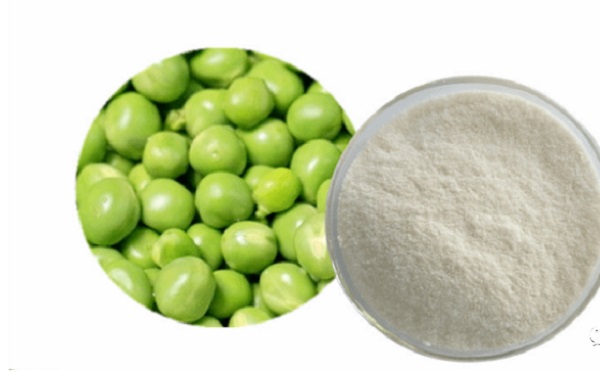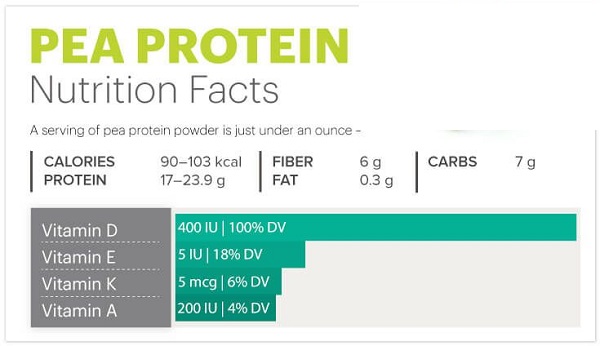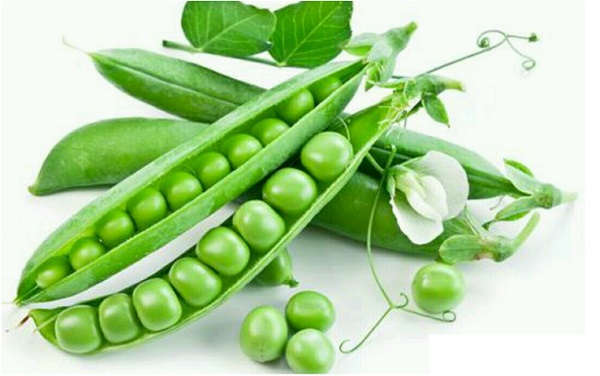Hydrolyzed Pea Protein Powder-An Important Source Of High-Quality Protein
2024-01-30 14:40:12
Introduction
Hydrolyzed Pea Protein Powder is an emerging high-quality protein source in recent years. It not only has high nutritional value but also features low toxicity and low allergenicity. By isolating and purifying the crude protein from yellow peas, a protein isolate with high protein content and low antinutritional factors can be obtained.
Pea protein exhibits good solubility and is easily absorbed by the human body. It does not contain estrogenic hormones and is not a major allergen, making it suitable for consumption by various populations.

Nutritional Composition of Pea Protein
Pea protein accounts for 22%-25% of the dry weight of peas, with globulins representing 55%-65% and albumins representing 18%-25%. Albumins include more tryptophan, lysine, and sulfur-containing amino acids than globulins, which have more arginine, phenylalanine, leucine, and isoleucine. Pea protein has a biological value (BV) ranging from 48% to 64% and a protein efficiency ratio (PER) ranging from 0.6 to 1.2, which is higher than soy. Overall, pea protein's amino acid content is somewhat balanced and near to the FAO/WHO standard pattern, making it a decent source of essential amino acids.

Hydrolyzed Pea Protein Powder
Pea protein hydrolysates have lower allergenicity, smaller and more concentrated molecular weights, higher digestibility, and a wider range of applicable populations. They are suitable for use in beverages, yogurt, infant formula, meat products, and baked items. Pea protein can be enzymatically hydrolyzed into substances with a molecular weight mainly concentrated between 500 and 1000 Da, which is beneficial for human absorption. Furthermore, pea protein has a low phytic acid level, which has no effect on iron absorption and causes no allergic reactions, making it an ideal protein source in infant food formulations and in the treatment of Helicobacter pylori infection. As a nutritional fortifier, it can supplement cereal protein, ensuring balanced nutrition.

In addition, research has found that hydrolyzed pea protein powder has significant ACE inhibitory activity, inhibits fat oxidation, and inhibits linoleic acid oxidation. Therefore, it can also be added to foods or supplements as a nutritional health factor to suppress chronic diseases caused by cellular oxidation.
Enzymatic hydrolysis of pea protein yields peptides with a variety of bioactive characteristics, including immune-modulating, anti-inflammatory, and antioxidant activities, which make them suitable for use as dietary supplements to prevent cardiovascular diseases.
Advancements in the Development and Utilization of Hydrolyzed Pea Protein Powder
1. Protein Source for Infant and Child Food
Research by Francois et al. showed that pea protein extracted from peas has the ability to reduce gastrointestinal gas and improve mineral bioavailability, making it particularly suitable as a protein source for infant food. Davidsson et al. reported that pea protein has a low phytic acid content, minimal impact on iron absorption, and no allergenic reactions, making it the optimal protein source in infant food formulas. Niehues et al. found that biologically active peptides isolated from yellow peas exhibited good anti-adhesive properties against Helicobacter pylori and can be used as functional ingredients to combat infections in infants and children.
2. Antioxidant Properties
Pea protein hydrolysates possess antioxidant properties. Pea protein hydrolysates and their isolated components have the ability to inhibit linoleic acid oxidation, helping to suppress the occurrence and development of chronic diseases caused by cellular oxidation. Pea oligopeptides retain strong antioxidant activity after digestion by gastric and pancreatic proteases.
3. Antibacterial Activity
In experiments conducted by Zhang Qiuping, the hydrolysates of pea protein isolated using papain exhibited antibacterial activity against both Gram-negative and Gram-positive bacteria, demonstrating a relatively broad-spectrum antibacterial effect.

4. Promotion of Probiotic Growth
Pan Fen et al. investigated the influence of alkaline protease hydrolyzed pea protein on the growth of 17 common probiotics. The study confirmed that hydrolyzed pea protein promotes the growth and viability of probiotics, reducing their production time.
5. Blood Pressure Regulation, Cholesterol Reduction, and Prevention of Cardiovascular Diseases
Long-term consumption of these peptides helps to treat hypertension without side effects and has no impact on normal blood pressure.
Studies by John B. Lasekan et al. demonstrated that compared to casein, pea protein more effectively reduces plasma cholesterol (61%), triglycerides (47%), and hepatic cholesterol (94%), while also reducing dietary cholesterol by 27%.
6. Alleviation of Insulin Resistance
Experiments conducted by Cui Xinyue et al. on humans showed that pea peptides have a certain alleviating effect on the formation of insulin resistance in liver cells.
Pea protein has gained popularity as a health food in developed countries, with an annual consumption of up to 650,000 tons, accounting for 50% of total legume consumption. Research by the U.S. Department of Agriculture found that consuming pea protein can effectively improve the dietary quality of the population. The Children and Adults Health Food Initiative launched in the United States recommends a daily intake of 0.5 cups of pea protein to ensure adequate nutrition and effectively prevent chronic diseases.
Related References:
"Research Progress on Modification and Development of Pea Protein" by Ma Ning, Wei Jiangmian, China Market, 2015, Issue 32
"Research Progress on Nutritional Composition and Functions of Yellow Peas" by Zhang Qianyuan, Han Dong, Li Duo, Food Science and Technology, 2012, Issue 6
"Research Progress on Pea Protein and Pea Antioxidant Peptides" by Xu Zhong, Wang Youjian, Chen Xiaoming, Zhao Dan, Gao Yang, Feng Xinning
"Antioxidant Activity of Pea Oligopeptides in a Simulated Gastrointestinal Digestive System" by Wang Yuchen, Gao Lihui, Han Tao, Liu Wenyi
For related products, please visit our website:www.sxytorganic.com
Contact Us For More Details>>
E-mail:sales@sxytorganic.com
Tel: +86-029-86478251
_1737093401309.png)
